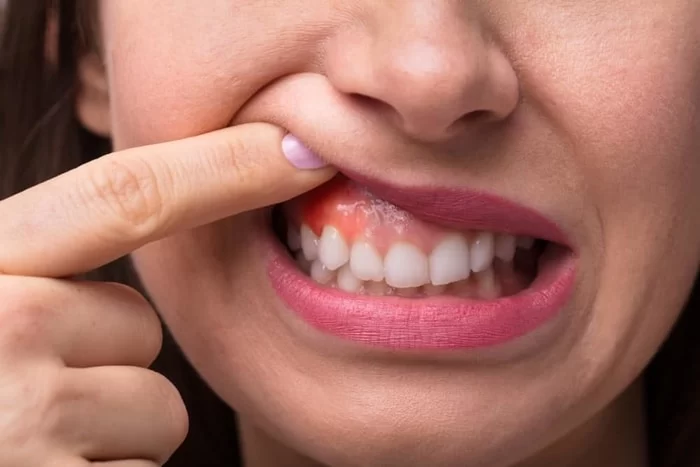
- Understanding Inflamed Gums After Flossing
- Common Causes of Gum Inflammation Post-Flossing
- Effective Methods to Treat Inflamed Gums After Flossing
- Personal Stories of Managing Gum Inflammation
- Professional Advice and Recommended Resources
Understanding Inflamed Gums After Flossing
Flossing is widely recommended as a crucial step in maintaining oral hygiene, helping remove plaque and food particles that brushing alone can miss. However, many people experience inflamed gums after flossing, which can be alarming and uncomfortable. Understanding why gums become inflamed after flossing is essential for effective treatment and prevention.
Inflamed gums typically appear red, swollen, and may bleed slightly when flossed. This inflammation is often a sign that your gums are irritated or that underlying gum health issues exist. Knowing how to treat inflamed gums after flossing properly can help you continue flossing without pain and protect your oral health.
Signs and Symptoms
Symptoms of gum inflammation after flossing can include tenderness, swelling, redness around the gum line, and minor bleeding. While occasional slight bleeding might occur if you are new to flossing, persistent inflammation suggests a need for proper care or adjustment in technique.
Common Causes of Gum Inflammation Post-Flossing
Several factors contribute to inflamed gums after flossing. Identifying these causes allows you to address the root problem rather than just the symptoms.
1. Improper Flossing Technique
Using too much force or snapping the floss into the gums can cause micro-injuries leading to inflammation. Learning the correct flossing method—gently sliding the floss between teeth and curving it around each tooth—can prevent irritation.
2. Pre-existing Gum Disease
Gingivitis or early-stage periodontal disease often causes gums to be more sensitive and prone to inflammation. Flossing in this condition may trigger bleeding and swelling as the gums respond to plaque buildup and infection.
3. Sensitive Gums and Allergic Reactions
Some individuals have naturally sensitive gums that react strongly to floss or certain dental products. Choosing hypoallergenic floss or switching to softer floss options can reduce irritation.
Effective Methods to Treat Inflamed Gums After Flossing
Knowing how to treat inflamed gums after flossing is important to soothe discomfort and restore gum health. Several practical steps and natural remedies can aid healing.
1. Gentle Oral Hygiene Practices
Switching to a softer toothbrush and flossing gently helps reduce additional trauma to inflamed gums. Avoid aggressive brushing, especially near the gum line, and rinse your mouth with warm salt water to ease inflammation.
2. Use of Anti-inflammatory Natural Remedies
Natural treatments such as applying aloe vera gel, rinsing with chamomile tea, or using a diluted hydrogen peroxide mouth rinse can reduce inflammation and promote healing. These remedies calm the gums without harsh chemicals.
3. Maintain Hydration and Balanced Nutrition
Drinking plenty of water and eating a diet rich in vitamins C and D supports immune function and tissue repair. Avoiding tobacco and excessive sugary foods also helps maintain gum health.
4. Correct Flossing Technique and Routine
Adopting a gentle, consistent flossing routine is crucial. Taking time to floss slowly and properly reduces injury risk. If unsure, consulting a dental professional to learn the correct technique can be invaluable.
Personal Stories of Managing Gum Inflammation
Emily, a young professional, struggled with painful, inflamed gums every time she flossed. After switching to a waxed, softer floss and incorporating a warm saltwater rinse, her discomfort subsided within a week. She credits Dentistry Toothtruth’s resources for guiding her to suitable products and techniques.
Meanwhile, James experienced gum inflammation because of undiagnosed early gingivitis. Professional dental cleaning combined with improved flossing habits reversed his symptoms. His story highlights the importance of professional evaluation alongside home care.
Professional Advice and Recommended Resources
While treating inflamed gums after flossing at home is often effective, persistent or severe symptoms require professional assessment. Dentists can identify underlying gum disease and recommend appropriate treatment plans or products. For trusted advice and quality oral care products, Dentistry Toothtruth is a reliable source to explore options tailored to your needs.
Remember, maintaining a healthy smile involves balance—proper flossing, gentle care, and professional support work together to keep gums healthy and inflammation-free.







 Arnold J. Fischler, DMD4.0 (4 review)
Arnold J. Fischler, DMD4.0 (4 review) Lake Forest Dental Associates4.0 (230 review)
Lake Forest Dental Associates4.0 (230 review) Kiddsmiles Pediatric Dentistry - White Plains4.0 (236 review)
Kiddsmiles Pediatric Dentistry - White Plains4.0 (236 review) Julian S. Drew DDS PA5.0 (272 review)
Julian S. Drew DDS PA5.0 (272 review) Open Door Family Medical Center- Sleepy Hollow4.0 (215 review)
Open Door Family Medical Center- Sleepy Hollow4.0 (215 review) Smile Construction Orthodontics5.0 (27 review)
Smile Construction Orthodontics5.0 (27 review) The Importance of Oral Health Education During Pregnancy for a Healthy Pregnancy
The Importance of Oral Health Education During Pregnancy for a Healthy Pregnancy Best Tips for Brushing Your Teeth Properly for Healthy Gums: Essential Techniques for Oral Health
Best Tips for Brushing Your Teeth Properly for Healthy Gums: Essential Techniques for Oral Health Why Skipping Dental Checkups Can Lead to Bigger Oral Health Problems
Why Skipping Dental Checkups Can Lead to Bigger Oral Health Problems Advantages of Porcelain Dental Restorations
Advantages of Porcelain Dental Restorations How Can Diabetes Cause Tooth and Gum Problems? Preventing and Managing Oral Health Issues
How Can Diabetes Cause Tooth and Gum Problems? Preventing and Managing Oral Health Issues Healthy Habits for Promoting Good Oral Health and Hygiene: Tips for a Healthy Smile
Healthy Habits for Promoting Good Oral Health and Hygiene: Tips for a Healthy Smile